OP Sequence
 |
 |
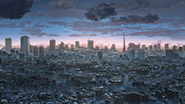 |
 |
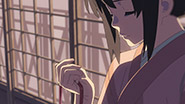 |
 |
 |
 |
 |
 |
 |
 |
OP: 「夢灯籠」 (Yume Tourou) by RADWIMPS
 |
 |
 |
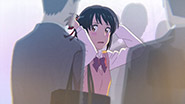 |
 |
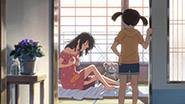 |
 |
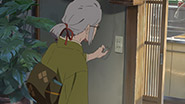 |
 |
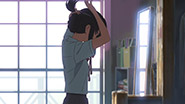 |
 |
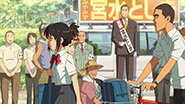 |
 |
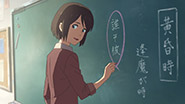 |
 |
 |
 |
 |
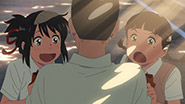 |
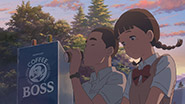 |
 |
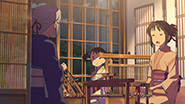 |
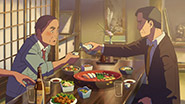 |
 |
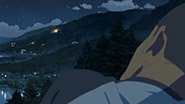 |
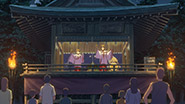 |
 |
 |
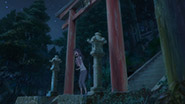 |
 |
 |
 |
 |
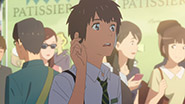 |
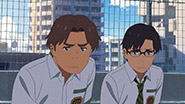 |
 |
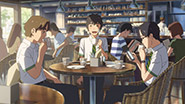 |
 |
 |
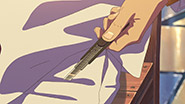 |
 |
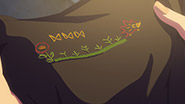 |
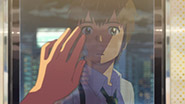 |
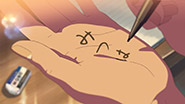 |
 |
 |
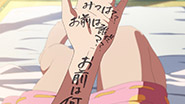 |
 |
 |
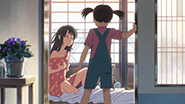 |
 |
 |
 |
 |
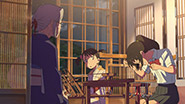 |
 |
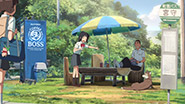 |
 |
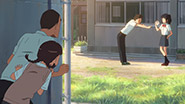 |
 |
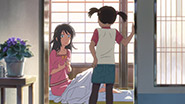 |
 |
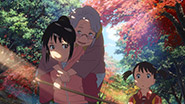 |
 |
 |
 |
 |
 |
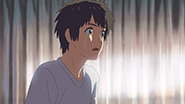 |
 |
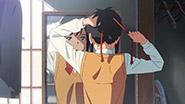 |
 |
 |
 |
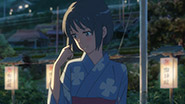 |
 |
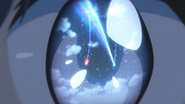 |
 |
 |
 |
 |
 |
 |
 |
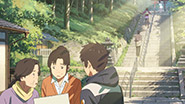 |
 |
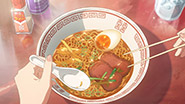 |
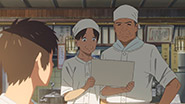 |
 |
 |
 |
 |
 |
 |
 |
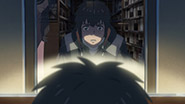 |
 |
 |
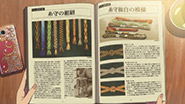 |
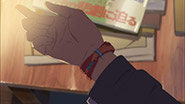 |
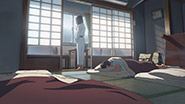 |
 |
 |
 |
 |
 |
 |
 |
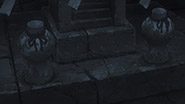 |
 |
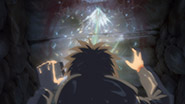 |
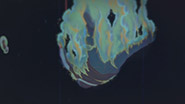 |
 |
 |
 |
 |
 |
 |
 |
 |
 |
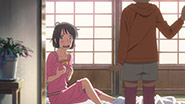 |
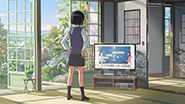 |
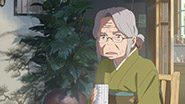 |
 |
 |
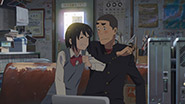 |
 |
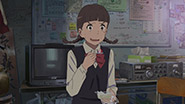 |
 |
 |
 |
 |
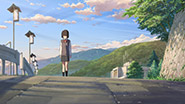 |
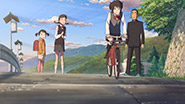 |
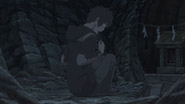 |
 |
 |
 |
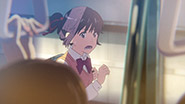 |
 |
 |
 |
 |
 |
 |
 |
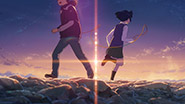 |
 |
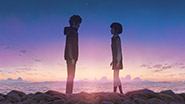 |
 |
 |
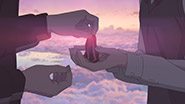 |
 |
 |
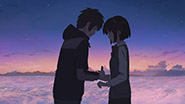 |
 |
 |
 |
 |
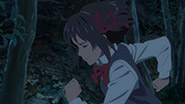 |
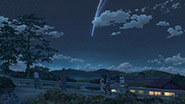 |
 |
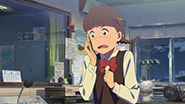 |
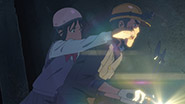 |
 |
 |
 |
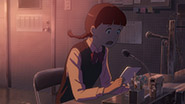 |
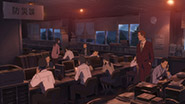 |
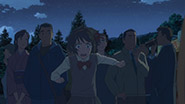 |
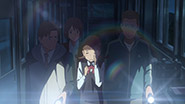 |
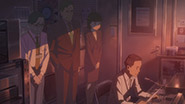 |
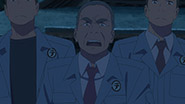 |
 |
 |
 |
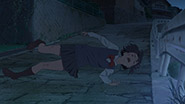 |
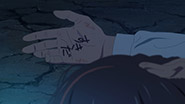 |
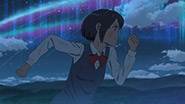 |
 |
 |
 |
 |
 |
 |
 |
 |
 |
 |
 |
 |
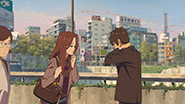 |
 |
 |
 |
 |
 |
 |
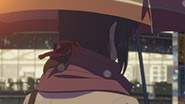 |
 |
 |
 |
 |
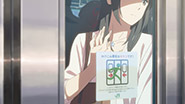 |
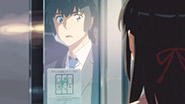 |
 |
 |
 |
 |
 |
 |
「君の名は。」 (Kimi no Na wa.)
“Your Name.”
Do I really need to say anything about Kimi no Na wa.? Even if you haven’t already watched it, you probably don’t need me to convince you to do so. It’s Shinkai Makoto. It’s extremely pretty. It’s definitely designed to be a summer blockbuster full of wide-reaching appeal, containing a good mix of comedy and drama, action and romance. And let’s not forget to mention the big musical set pieces that will blow you away. If you’re an anime fan, then this is some of best that anime can possibly offer, so there’s no question about watching it. I actually managed to convince some anime-ambivalent mates of mine to come watch Kimi no Na wa. with me at the cinema, and they all came out of the theatre quite moved by what, to them, was a foreign animated feature with subtitles. If the worth of a work is in the power of its reach, then Shinkai-sensei has wrought a masterpiece indeed. I could spend the next thousand words heaping accolades on him, but I’m sure plenty before me have done that already, and I don’t plan on disagreeing. Instead, let us take a Passerby tangent and instead talk about Shinkai Makoto’s other works, and how Kimi no Na wa. fits itself into his ouevre.
Around the time Miyazaki Hayao announced his retirement (then un-retired, then re-retired), there was some talk about who could possibly fill his giant, medium-defining shoes. And up floated the name of Shinkai Makoto. Understandable: Shinkai-sensei proved himself as an excellent director, his films were gorgeous, and he was the next big name in a world without Studio Ghibli. The line of succession seemed clear. And it does seem that Shinkai has, to some degree, taken up that mantle. There was, of course, his most blatant attempt in Hoshi o Ou Kodomo, but we can see the influences in Kimi no Na wa. as well. The sweeping vistas share Miyazaki’s own love of the Japanese countryside, and the overtones of Shinto mysticism are obvious, as they were in Miyazaki films like Spirited Away. I often mention that there is something intrinsically, culturally Japanese that makes anime anime, and evidently Shinkai is flying that flag, too.
In many other ways, though, Shinkai Makoto is very plainly not Miyazaki Hayao—not as a knock against either man, but just as an observation that they’re two different people. In visual style, Shinkai favours hyperrealism where Miyazaki would be more abstract (though I hate to generalise). Miyazaki’s composer partner, Hisaishi Joe, specialised in instrumental minimalism, whereas in Kimi no Na wa. we can tell that Shinkai most enjoys making music videos. And in terms of subject matter Miyazaki talked mostly about childhood, while Shinkai mostly about adolescence. Miyazaki is actually something of a grumpy old man at times, and he has a thing or two to say to those kids on his lawn. But he makes this a positive experience in his films, attempting to inspire the younger generation while speaking to the inner child of his older audience. Shinkai, on the other hand, rather than lecture or inspire, empathises. When talking about adolescence, he talks of a time filled with doubt, confusion and pain. He’s been there, he’s felt it, and he wants to express it as an artist. Many of his works—all of his works?—have bittersweet aftertastes, which is usually (usually) not a flavour Miyazaki uses. This is what makes Kimi no Na wa. so notable in Shinkai’s oeuvre.
Kimi no Na wa. has a happy ending.
Of course, it could just be that the happy ending focus-grouped better, as happy endings often do. Lets push our cynicism aside, though, and gaze in wonder at Shinkai Makoto being happy. His films have so notably been about separation and yearning (just take the defining 5cm Per Second, and later Garden of Words), that Kimi no Na wa. seems like a huge step. Make no mistake, I’m not saying that Kimi no Na wa. is not also about separation and yearning—we have more than enough wistful gazes to prove it. There are unrequited loves aplenty. There is pro forma heartbreak. And Shinkai talks at length about the ephemeral nature of adolescence, as if it were a fleeting dream. Imagine how easy and in-character for Shinkai it would have been for Kimi no Na wa. to have ended on the bridge, to pass each other by and go their separate ways, leaving their adventure behind as a youthful fancy. But it doesn’t. In 5/8 years, time had healed other wounds. But our protagonists held onto the dream, held onto the yearning, held onto the pain—and something comes out of it. It’s not even up in the air, like in Garden of Words. No, they are rewarded with fulfilment. They get their happy ending.
Journey back with me, if you will, to Shinkai Makoto’s earlier days, to back when he was still a one-man-show, to Voices of a Distant Star. For those of you who haven’t watched it (and like all things Shinkai, you should), it’s a sci-fi in which a female mecha pilot fights in space while keeping in touch with her boyfriend via text messages. Spoiler warning: it’s about separation and yearning. More than that, though, it’s about heartwrenching barriers of distance, in not just space but also time (sit down, physicists). Does it all sound vaguely familiar? It’s vintage Shinkai, but specifically shares the same soul as Kimi no Na wa.. It’s as if he has finally come full-circle. Voices of a Distant Star was ultimately a tragedy. Kimi no Na wa. could have been, but firmly sidesteps it. Perhaps the happy ending was just more of Shinkai emulating ‘the next Miyazaki’—which he is not but some expect him to be. I, though, see something else here. Shinkai-sensei was grappling with something deep and troubling within himself when he made Voices of a Distant Star. He grappled with it for a decade and a half. And now, perhaps, he has found his answer. Thus, Kimi no Na wa.
Full-length images: 209.
ED Sequence
 |
 |
 |
 |
ED: 「なんでもないや」 (Nandemonaiya) by RADWIMPS

Shinkai thinks one reason Name succeeded with Japanese viewers was because it provided catharsis regarding the 2011 Tohoku earthquake.
The event changed Japan, Shinkai says. “People still have huge regret about 2011. Everybody was praying for everyone. It affected all of us, including me. So I really wanted to create something like a miracle. OK, it might be a fiction, it might be a lie, but we still want to have hope. That’s what I was thinking when I was making this film.”
http://www.google.com/amp/s/amp.theguardian.com/film/2016/nov/09/makoto-shinkai-director-anime-your-name
PS. His opinions on computer drawn art and animation: People who draw tend to think they’re craftsmen so they really want to hang onto their pens and papers, but it’s not terribly productive. To be honest with you, it’s faster and easier to start with the computer.
I dont fully agree with his philosophy on animation but it makes sense; shinkai is not an animator in the traditional sense; hell, even he doesnt consider himself that (and it has showed in some of his projects). He’s a digital effects master. I think shinkai has been overwhelmed with the success of your name. He probably always envisioned himself being this kind of low-key creator that people admired and lauded but never put on a global pedestal. Now your name has become this huge hit and it has created expectations of him he probably never wanted. It’ll probably be annoying for him to have to hear people compare his future works to your name, a movie that while he’s proud of, he still thinks could have used some polish.
Catharsis is something we always need, I think. That precisely the role of fiction. And fiction contains truth far more than any common lie.
Kimi no Na Wa is like a “Best of Makoto Shinkai” compilation, and more. Many story elements and scenes are reminiscent of his earlier works, but Shinkai appears to have learned from their weaknesses, in terms of narrative, pacing, and mood.
For example, “Kumo no Mukō, Yakusoku no Basho” has a fairly lighthearted early part, which abruptly becomes heavy and dragging, and never fully recovers. In contrast, “Kimi no Na Wa” manages to balance humor and drama well enough, and escapes the soul-crushing middle part with renewed vigor (and a running gag).
Not really spoilers…
Show Spoiler ▼
Was it? I watched it a long time ago, and it felt more open-ended.
Yes, that teacher is Ouma. The voice actress is the same.
I was a little disappointed that we didn’t get even a short flash of her shoes, just to further nod at that character.
Voices of a Distant Star was also a long time ago for me, but here’s how I remember it: Show Spoiler ▼
.
The Background are beautiful
5 Screenshot per Second.
Garden of Words
I just bought the Blu-Ray collector’s edition, and it’s supposed to come in today. I’m really excited about it, even if it doesn’t have the dubbed track.
I think you kind of touched on it, but I just wanted to say it. Your Name feels like the culmination of Makoto Shinkai’s previous works. I really liked how he blended fantasy with a love story the way he did. Watching it for the first time in theaters really gave me a sense of optimism for the future. After seeing it in theaters, I really, really wanted to watch it again despite how late it was. To my knowledge, this was the first film which really gave me that sense of longing to watch it again (though I might have had that feeling while I was younger, at least now, I’m more aware of my feelings and can appreciate films more). It may not mean much to people, but it’s the best way to describe my feelings about the film.
Fantasy elements aside, the film really reminded me of 5 Centimeters per Second. The Infinite Zenith did a wonderful job in his review of the film and his comparison between the two works. Taki and Takaki are both similar people, yet the difference between them is starking. Taki took the initiative and went to sought out Mitsuha while Takaki didn’t. Their differences really highlight how different the films are, though I have to say that in Takaki’s defense, he was on an island that was an hour from the mainland, and he didn’t have any fancy apps or stuff like that, so it wasn’t like he could hop on a train over the weekend. The happy ending was really nice. They don’t actually remember each other, but their subconsciousness is saying otherwise, drawing them together despite rationality. It’s really beautiful, and I really I hope I have experiences like that in the future.
Passerby, I was wondering what kind of nitpicking could you do about the film if you had to list some bad points? As great as this film is, I’m curious as to where Shinkai could improve.
Show Spoiler ▼
Speaking of Shinkai, when I heard that this film was in the works, I don’t think that anyone could have imagined that it would be such a big hit. I know that people label him as the next Miyazaki, but I just hope that he stays true to himself and don’t let the sudden publicity get to his head. From what I heard, he’s thinking about his next big work right now. Given the success of Kimi no Na Wa, I hope he isn’t pressured to make another great blockbuster hit and have his work suffer as a result. In some ways, I’m glad if he decides to take years on his next work if that means making a high quality film like his other works. I guess I don’t want him to burn out and make horrible films. (Actually, food for thought, have there been any directors that made top hits and then just made trash in anime?)
I don’t particularly like nitpicking a film like this. I prefer to look at the overall experience and any focus on the details would be on whether they added or subtracted to that experience. For example, I could talk about the plot holes, but ultimately I think they don’t detract much from the experience of the film.
I also think it’s good that Shinkai showed some of that optimistic spirit in Kimi no Na wa.. He certainly can’t be the next Miyazaki without it—though, like you, I don’t think he needs to be.
I’ve seen discussions elsewhere saying that Your Name should have ended with Taki and Mitsuha not meeting, but to have done so would be to contradict the very theme the movie was going for. The ending we got was the ending that, on top of being the ones that audiences deserve, was one that reaffirms the ideas that Shinkai presents in the movie, and as you’ve noted, represents the sum of all his experiences with his earlier films up until now. Can’t wait to see what he has planned for the future!
I think if you’ve grown accustomed to Shinkai’s fare then Kimi no Na wa. certainly goes against that grain. I don’t think any director needs to pidgeonhole themselves that, though, and I would actually be disappointed if Shinkai-sensei never displayed any growth.
I agree. This is the first outright happy ending that Shinkai has given us. Everything that came before had bittersweet (but hopeful) endings at best, like Kotonoha no Niwa and Kumo no Mukō, Yakusoku no Basho, and downright tearjerkers at worst, like 5cm per Second.
Another great anime movie
The movie just didn’t make any damn sense. Still kinda fun to watch though.
I personally found it understandable enough. Feel free to ask any questions you may have in these comments.
So the post has finally come eh?
Well, here’s the thing. I’ll always love the beauty of Shinkai’s more recent films in terms of their visual aesthetics. I haven’t watched anyone to completion myself but frankly just watching these films drenched in his fixation on a very specific template in which he tweaks his stories drains me of any enthusiasm, thus why I actually dropped watching these movies 5-12 minutes in. To put it simply, I just loathe his stories. “Oh you hate it because it’s popular and because you think the writing sucks” you may say, but I’ll only say that that is true only for this one. What drives my aversion of his stories are 2 things. Just 2.
A) I know I can do better
B) The emotionality of his narratives combined with his mindset on love and so on does in a sense, insult my personal experiences and beliefs
So yeah, it’s personal this time around. And I’m having none of it. I’ll treat his works as competition so to speak. Also why I couldn’t bear to watch Tsuki ga Kirei. Or any bear witness to any story of this strain ever again. It’s personal, people. It’s personal.
Anyways these are just the ramblings of one homo sapiens’ psychical experiences. Whatever works for you, works I guess. But know that this story can never be the best, nor can it not eventually be bested by something else. Remember, competition is just over the horizon waiting patiently for the prey to be sunk. By being in the spotlight, you just triggered my AEGIS system.
12 minutes, though, is not really enough to assess anything. I mean, 12 minutes in Kimi no Na wa. is still doing comedy. If you’re aiming to be a creator, I think it’s doubly important consume a wide range, especially of things you personally dislike.
I’ve experienced all kinds of things, the good, the bad, the appealing, the meh, the ugly, the pretty, and everything in between. I watched stuff my ACG senpai told me to try out and so I did. Loved some, hated some. But those were tame and mild. And then there’s these. For instance, I watched from afar as Angry Joe completely disintegrated into mush playing Ride To Hell. Seen with my own eyes right in front of me, countless bookshelves displaying hand drawn comics about rape in a Japanese porn shop. Listened in real time to this GODFORSAKEN STILLBORN of… Of… OF… GAH, I don’t want to remember it. And what’s worst, is that by such logic I should have a gander playing Contra and E.T on the Atari 2600, reading hand drawn porn about people stealing away my wife, watch The Serbian Movie 10 times as a challenge, drink ‘alcoholic’ beverages, try being part of an anti-religious cult or rewatch Infinite Stratos 2 for the second fucking time. No… God no… God spare me please… ( ; _ ; )
You see where this is going? Trust me Passerby senpai, I’ve tried and challenged myself every now and then always. What really is the essence of my aversion and loathing of the stories in Shinkai-san’s works is something that’s far too personal to regale here. All I can say is that I’ve been through some shit and had something similar in terms of chronological events happen to me before 2 years ago. I can’t say anymore than that. I’ll rewatch Kotonoha no Niwa once again but for every other one of his stories, I aim to surpass them. It’s war then yeah, when it’s all personal like this…
Whatever it is, pay no attention to me. I’m just one bereaved homo sapien raving like a pathetically bruised ape in the head. Carry on people, carry on… What else is there to see?
Thanks for taking so many screencaps! It was nice to re-experience the movie by just scrolling through. Also, very good write-up!
Thanks for reading!
Some plot points were a bit confusing to me, especially the ones occurring in the middle. A summary online and on tvtropes really made me understand them better, but not completely. Also, yeah calendar dates are EVERYWHERE, you’re tellin me neither Mitsuhu or Taki never realized they were 3 years apart until after the meteor fell??
That said, this is a wonderful film, and it is beautiful just like his other films. I do understand why he wanted to work more on the story though.
There were some vague plot holes, to be sure (like neither of them ever encountering any mention of the year while swapped, or Taki’s preternatural walking speed) but I personally followed along just fine. I think the big thing about the middle is that it’s very, very Shinto. They do try to explain it at points, but even then it’s a bit surreal, an certainly culturally grounded.
Still, in dreams, the details are always a bit fuzzy. Don’t let them bother you too much.
I understood the religious/beliefs part of the movie and it did explain it or atleast try in both words and visuals, even the almost universal red string of fate was tied in there.
The only thing that made me absolutely cringe was the whole “i can’t express myself” culture barrier that i kept having, like not explaining yourself to people, keeping yourself distant, not telling her father to “shut the fuck up and listen you damn retard, look at me.. im the captain nao”
The manga version of Voice of A Distant Star ended in a happy ending though. The anime is more like a bittersweet open end instead of outright sad ending.
It is like Nolan’s Interstellar all over again…or should I say Interstellar is like Voice of a Distant Star?
It’s in the nature of art to imitate art, but also life, because it’s a rather possible sci-fi scenario. I wouldn’t be surprised, though, if Nolan took inspiration from Voices.
Had a very interesting plot and the drawing is just beautiful.. I watched this movie a while ago but I think I’m going to watch it again now.
i know it’s only a coincidence, but some movie theaters in my country is showing Kimi No Na Wa again this week.
I guess I’ll go watch it for the fifth time while I wait for my collector’s edition. Truly a mesmerizing movie for me.
I kind of felt that watching other movies after I saw this …well, lack the enjoyment I got from this movie?
I loved Kimi no na wa, definitely a great movie and a well deserved success !
Shinkai’s attention to detail never cease to amaze me, especially those gorgeous backgrounds that became his trademark. Maybe the 1st movie that made me want to watch it in 4K.
Phycisists? Are these new physicists capable of opening wormholes in spacetime? J/K, I know it’s a typo.
Anyway, it looks like Kimi no Na wa post is finally out of the bag. I know I’m waiting for the NA BluRay release to add to my Shinkai Makoto-sensei movie collection. Despite being a big fan of Shinkai-sensei, I do have mixed feelings for some of his works. For example, Byousoku 5 Centimeters (5 Centimeters per Second) was the epitome of digital Anime art form, but the ending felt like getting stabbed in the heart. I can liken the feeling to watching Anime for escapism (yeah, I’m an Anime junkie), but then getting hit by a big dose of reality. The net result is a bitter aftertaste. To this day, I still have trouble rewatching that movie. I know I’m supposed to feel “bittersweet” (i.e. theme of “moving on”), but some of Shinkai-sensei’s works just leaves me at the bitter part.
As Passerby points out, I was afraid Kimi no Na wa was headed in that direction (last five minutes, anyone?), but I’m glad we finally got the happy ending. Well, Kumo no Mukou, Yakusoku no Basho had a fairly happy ending and of course, Anime as an art form is interpreted according to personal tastes and opinions, but I felt Kimi no Na wa hit all the right chords and it took Shinkai-sensei’s evolution from his previous works to get it just right. The popularity of Kimi no Na wa seems to substantiate that.
Fixed!
Sinkai is a one-bit hack, as simple as that. No amount of pretty pictures can cover the cookie-cutter rehashes he tries to pass as a story.
Did some countries only got this show screened in the cinemas recently? Mine was back in Dec’16.
It was released very late in North America. Even Great Britain got it earlier. South East Asia even more so. Like it began airing on December 8th 2016 CE
Can confirm. Other than Samu who caught it at some Scottish Film Festival, I saw Kimi no Na Wa the earliest at the cinema out of all the RandomC staff!
I’ve always regarded Shinkai as someone who can’t handle longer stories. His best work for me is still his very first original work, She and her Cat. Coming in at under 5 minutes, it still has more to say about the human condition and life in general than many other animated works, and remarkably, it can do that in spite of being told from a cat’s point of view.
Kimi no Na wa, as Passerby says, is “a good mix of comedy and drama, action and romance.” But that’s because it’s really several quite separate shorter stories mashed up together, and not always entirely successfully. With that said, each of these stories is stronger for being shorter, because that’s Shinkai’s true power.
Lovely writing as usual Passerby.
Thanks~
I still find the character art lacking. After watching the movie, I already forgot how the characters look. But by God, the backgrounds are lovely, and the movie is wonderfully crafter. Not the best anime movie but definitely up there. Although the plot didn’t make much sense, the film is so emotionally satisfying I could watch it over and over again and never tire of it.
Achievement is an intereating term since in this directors case it may do more harm in the long term than good.
what stood out most to me were the themes of science and mysticism, and time. it’s only with the progress of technology that taki and mitsuha are able to meet (unlike mitsuha’s grandma and mysterious person she swapped with) e.g. trains, phones, archives, and at the end it’s the unexplainable magicks that alters fate.
…but my prof thinks it’s about dementia and forgetting the things most important.
goes to show it’s really a work that appeals to and resonates with different ages (‘:
As much as I love the music in Kimi no na wa., I find myself missing the music written by Tenmon. For me, his music in The Place Promised in Our Early Days and 5 cm per Second define those movies by Shinkai. Without him in Kimi no na wa., it feels like something’s missing.
Shinkai’s “She and Her Cat” tore my innards apart.
Such a fucking masterpiece.
Thanks for the review, Passerby. I saw the movie when it was released a couple of months ago in the states and I was impressed with the film. I heard about the film when it was first released in Japan and was waiting until the movie would come over into the states. (I enjoy most of his work even though there melancholy but this one was sweet. A friend and I are waiting for the dvd to come out.
Best Movie 2017
Best movie of 2016.
Watched it x2 in the cinema and x2 on the plane to and fro from Japan
I’d personally give it to Koe no Katachi 😛
When this title was first announced, did anyone really think that it would be the success that it is today? I honestly thought that it was just another gorgeous Makoto Shinkai film; never once did I think that it would be as big as it is today. I never heard of his other films getting a theatrical release in the US, so seeing his film be brought over to America is pretty awesome (then again, I only heard about his films back in 2010, so I didn’t know whether 5 Centimeters per Second was shown in the US in theaters or not).